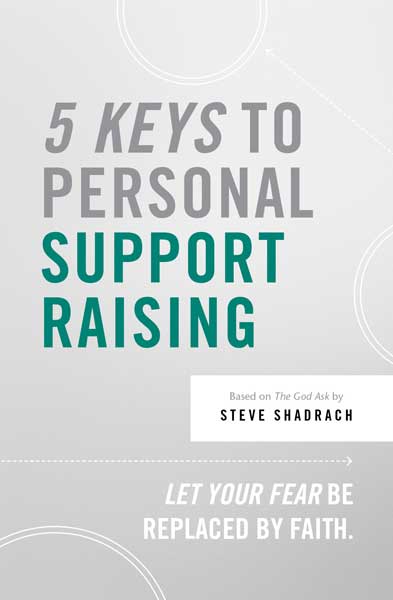
As children, we are expected to learn. Our parents, teachers, and coaches dictate the things we need to know, often with a “you’ll need this in the future” caveat. We observed and listened. After all, learning was our primary responsibility as children.
All of that changes in adulthood. Learning becomes a choice, and with that choice comes the authority to dictate what we will learn, when we will learn it, and whom we want to learn it from. Adult education includes unique factors that impact the learning experience.
As support-raising trainers, we want to effectively equip staff within our organization with the knowledge and skills to succeed in support raising. The learning opportunities we provide are an essential part of that process. Here are three core principles of adult learning to consider in providing any level of support-raising training:
1. Adult learners are motivated by relevance
We pursue learning opportunities that will directly improve our lives and meet an immediate need. “You’ll need this someday” no longer motivates. We desire to see clearly why learning something is important and how it applies to life. A new staff member raising support for the first time will likely find a support raising training very relevant. But what about a veteran staff member receiving ongoing training? Training topics should be driven by the felt needs of staff. An hour long training on compiling a good newsletter will leave veteran staff disengaged if their greatest need is knowing how to improve their year-end ask strategy.
Cast clear vision for why a topic is relevant and provide practical application. Take time to listen to the felt needs of participants and use that information to direct future learning topics.
2. Adult learners have prior experience/knowledge
We bring to the learning experience a wealth of pre-existing knowledge and experiences. Rarely does an adult educator begin with a blank canvas. A trainer may bring greater insight and understanding to a topic, but they are not the only person in the room to learn from. We can contribute to one anothers learning through sharing existing knowledge and drawing on each other’s diverse experiences.
Prioritize group discussion and individualization in training. Provide outlets for adults to incorporate or compare existing knowledge with what they are learning and share from their experiences.
Steer conversations around existing knowledge and experience by incorporating less-obvious components still connected to the learning objective. For example, give participants an opportunity to talk about a time when they were fearful of doing something and how they worked to overcome that fear, or to share about an action or note they’ve been the recipient of that made them feel genuinely appreciated. Connecting current learning to past experiences can enhance learning.
3. Adult learners are self-directed
We are self-directed in our approach. We need to feel as though we have a sense of responsibility, control, and decision-making over our learning. Trainers who act as facilitators rather than fact experts create an atmosphere where adult learners feel like active participants in the learning process. Working in cooperation with others or sharing personal findings in learning give adult learners a greater sense of ownership and buy-in.
Allow participants to help inform next steps and ongoing learning needs after a training event. Provide opportunities for them to collaborate and speak into the learning experience.
As trainers, our responsibility is to guide learning, not force it. By ensuring trainings offered to staff are relevant, incorporating prior knowledge/experiences, and providing opportunities for self-directed learning, we create environments where deeper connection can take place.

